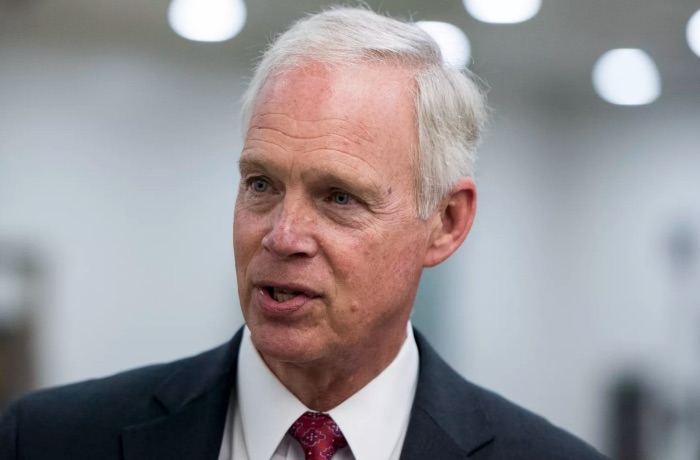We owe our respect and our support to the men and women who have volunteered to serve this great nation. Since joining the Senate in 2011, Senator Johnson has pushed for needed reforms in multiple areas to ensure that our veterans, the finest among us, receive the quality care they deserve.
Investigating Abuses at the Department of Veterans Affairs (VA)
In January 2015, Senator Johnson was troubled to hear allegations that some doctors were “dispensing drugs like candy” at the Tomah VA Medical Center in Wisconsin. As chairman of the Senate Committee on Homeland Security and Governmental Affairs (HSGAC), Senator Johnson immediately launched an investigation.
Over the course of the investigation:
- Senator Johnson’s staff spoke with countless whistleblowers and victims of the Tomah tragedies, and conducted formal interviews of witnesses with knowledge of the tragedies.
- Senator Johnson chaired multiple hearings related to the tragedies at the Tomah VA, including a bipartisan field hearing in Tomah to hear the testimony of whistleblowers, family members, VA officials and VA Inspector General officials.
- Senator Johnson’s inquiries of the VA Office of the Inspector General led to greater transparency, including the publication of previously unreleased reports dating back to 2006.
- Senator Johnson released an interim report on the Tomah VA investigation on June 25, 2015.
- Senator Johnson released the final report on the investigation on May 31, 2016.
In addition to uncovering abuses at the VA via the HSGAC investigation, Senator Johnson has authored and cosponsored numerous pieces of legislation aimed at bringing accountability to federal agencies, protecting whistleblowers and improving veterans’ health care.
Some of these pieces of legislation include:
- On Oct. 1, 2015, Senator Johnson introduced S. 2127, a bill named after Dr. Chris Kirkpatrick, a psychologist at the Tomah VA Medical Center, who was fired after he questioned the overmedication of veterans at the facility. The bill aims to enhance whistleblower protections throughout the government, ensure that retaliators are held accountable, and safeguard the medical records of VA employees who are veterans also.
- Ensuring Veteran Safety Through Accountability Act of 2015, S. 1117
- Senator Johnson introduced this bill to give the secretary of the VA expedited authority to fire a health care professional when necessary for poor performance or misconduct.
- Section 239 of the Consolidated Appropriations Act, H.R. 2029
- Senator Johnson worked across the aisle with his colleagues to develop this legislation requiring the VA Inspector General to make reports more readily available to Congress and online.
- Department of Veterans Affairs Accountability Act of 2015, S. 1082
- This Rubio-Johnson bill was introduced to provide expedited firing authority for any VA employee when necessary for poor performance or misconduct.
- VA Patient Protection Act of 2015, S. 2291
- Senator Johnson became an original cosponsor of this bill to direct the VA to punish supervisors found retaliating against whistleblowers.
- Johnson Amendment to the Comprehensive Addiction and Recovery Act of 2016, S. 524
- Senator Johnson introduced an amendment aimed at prioritizing the reform of standards for prescribing painkilling drugs to protect patients suffering from both pain and post-traumatic stress disorder (PTSD). He developed this piece of legislation after learning about the dangers of overprescription faced by veterans receiving care in the federal VA health care system.
- The amendment had the support of former Wisconsin Department of Veterans Affairs Secretary Ray Boland, The American Legion Department of Wisconsin, The American Legion National Headquarters, Military Order of the Purple Heart U.S.A., and Veterans of Foreign Wars of the United States.
- Jason Simcakoski Memorial Opioid Safety Act, S. 1641
- Named after Jason Simcakoski, a veteran who tragically died of a drug overdose at the Tomah VA in Wisconsin in 2014, this bill directs the Department of Defense and the VA to update opioid therapy guidelines.
- Inspector General Empowerment Act of 2015, S. 579
- Senator Johnson became an original cosponsor of this bill to expand the powers of inspectors general to provide improved oversight.
- Clay Hunt Suicide Prevention for American Veterans Act, S. 167
- Senator Johnson cosponsored and voted to pass this legislation that improves mental health care and suicide prevention resources for veterans.
Supporting Quality Healthcare for Veterans
America’s veterans deserve access to the best possible healthcare. VA facilities are able to provide highly specialized care for health concerns that uniquely impact veterans. However, not all veterans live near VA facilities and/or are able to get a VA appointment in a timely fashion.
On July 31, 2014, Senator Johnson voted in favor of the final version of the Veterans Access, Choice, and Accountability Act (known as the VA Choice Act). At the time of the vote, the Congressional Budget Office (CBO) estimated that the bill would cost less than $15 billion, a far more sustainable figure than the $435 billion that it projected for the June 2014 version of the bill. Congress’ intent for the VA Choice Act was to allow veterans to access care from private doctors and facilities if they live more than 40 miles away from a VA facility or cannot get an appointment at the VA within 30 days.
On May 22, 2018, Senator Johnson voted in favor of the VA Maintaining Internal Systems and Strengthening Integrated Outside Networks Act of 2018 (known as the VA MISSION Act of 2018). This bill was signed into law in June 2018 and is intended to build upon the VA Choice Act by expanding veteran access to community care options.
Honoring Our Veterans
Senator Johnson is proud to honor Wisconsin’s veterans. He has led efforts to rename post offices in honor of some of the state’s most notable past service members, upgrade military medals to recognize outstanding valor and sacrifice, and install a new monument at Arlington National Cemetery.
Veterans Services
In addition to his work on legislation, Senator Johnson and his staff continue to assist constituent veterans navigate VA healthcare and benefits. If you would like assistance with a specific case, please contact the Senator’s office here.



